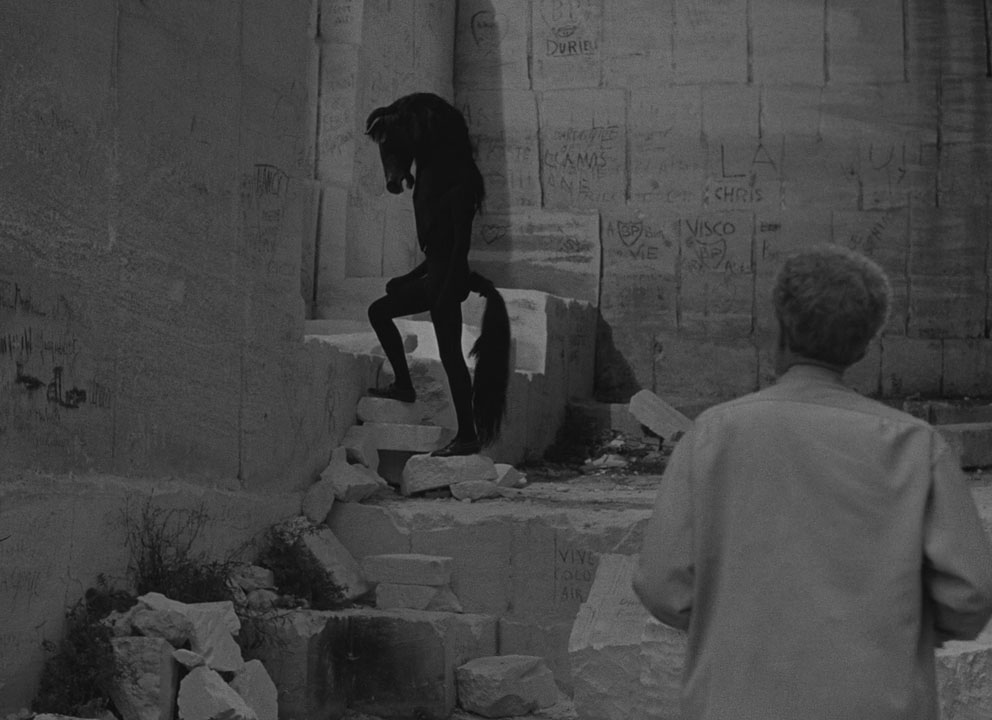Final movie watched in the 2010’s. I rewatched Orpheus near the beginning of the decade, and it took me this long to get to the next one. Meant to watch the trilogy closer together, then go through the Lucien Clergue book, but instead it took 15 years and I don’t have the book handy, think it’s in storage. I did find The Eagle Has Two Heads and The Human Voice and The Difficulty of Being, the last of which was written in 1957, so has no wisdom about the making of this film. But like this film, the 1957 book seems very precious and big-headed about the magic powers of Jean’s great poetry.

A semi-sequel, opening with a clip from the end of Orpheus with the dialogue silenced, Jean ends up stepping inside his own film and interacting with his characters Princess Maria Casares and her accomplice Heurtebise. They’ve put Jean on trial for something or other, and this conversation eats up 25 minutes of an 80-minute movie, erasing the memory of the beautiful silence of the opening scene with constant chatter. The underworld actors look terrific at all times, at least. Jean puts himself in the position of being defensive about his art – when you are this explicit about the nature and intent of poetry, it ceases to be poetic. When he first entered the world of his previous film, I thought this is some Beaches of Agnes / Simon Cinema stuff, but this centerpiece trial feels more like an Orpheus DVD extra.


Before the trial, a bewigged time-traveling Jean visits a professor at four times in his life: as a schoolboy (Jean-Pierre Leaud! This played Cannes exactly a year after The 400 Blows), as a baby and a dying old man, and finally the active doctor he’s seeking. He follows a horse-headed man, rediscovers his Orphic character Cégeste, then to the trial, where he gives the best line to another character: “He is a poet, which makes him indispensable, though I don’t know what for.” I liked the lack of set dressing, shooting in an undressed studio and against ancient/timeless walls covered in modern graffiti. Into a Kafkaesque underworld ruled by Yul Brynner, where Jean is javelinned to death then reborn.

From Cocteau’s essay reprinted for the Criterion discs, it seems he intended Orpheus to be the narrative centerpiece between two less-narrative films. And more than those other two, this one was filmed on intuition:
Often, while making the film, I understood so little of what I was producing that I was tempted to call it absurd and to cut it out. At those times, I forced myself to condemn my own judgment and to tell myself that if the film wanted it that way to begin with, it must have had its reasons, or that reason had nothing to do with it.
The essay has one thing in common with The Difficulty of Being: shitting on French audiences, “where every member of an individualistic crowd puts up an instinctive resistance to what is offered him,” for not appreciating poetry and fantasy in cinema. Shot by Roland Pontoizeau, a Resnais associate who’d worked on Le chant du Styrène – the DP of Orpheus was off working with Melville and Rohmer.
